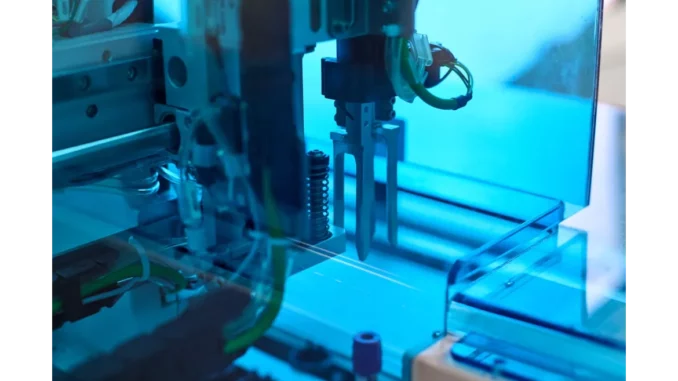
In the ever-evolving domain of healthcare, certain areas possess the undeniable potential to revolutionise patient outcomes and treatment methodologies. Recently, I had the privilege to engage with Dr. Sarah Mitchell, a distinguished researcher from a leading oncology centre, who provided invaluable insights into the Lung Cancer Molecular Diagnostics Market. Our discussion unfolded against the backdrop of a compelling report by Wise Guy Reports, which underscores the transformative developments and future prospects in this burgeoning sector.
Dr. Mitchell began by highlighting the sobering reality of lung cancer, which continues to be a predominant cause of cancer-related fatalities worldwide. The urgency for advanced diagnostics has never been more critical. “The stakes are incredibly high,” Dr. Mitchell emphasised, underscoring the pressing need for innovative solutions. According to the report, the market is projected to expand from $3.12 billion in 2024 to a remarkable $5.9 billion by 2032. This significant growth trajectory is fuelled by advancements in molecular diagnostic technologies and an escalating demand for personalised medicine, which tailors treatment to an individual’s genetic composition.
As the conversation progressed, we explored the innovative strides being made by key market players. Companies like Abbott Molecular, Sysmex Corporation, and Illumina are not merely participating in the market but are driving it forward with pioneering technologies that facilitate early detection and precise diagnosis of lung cancer. Dr. Mitchell observed, “These companies are not just competing; they’re pushing each other to innovate faster, which ultimately benefits the patients.” The landscape of competition has fostered an environment where rapid advancements are not just encouraged but are essential for progress.
One of the most promising advancements in this field is the utilisation of molecular diagnostics to scrutinise genetic mutations and biomarkers. This innovation allows for treatment regimens that are tailored to the unique genetic profiles of patients, thereby enhancing therapeutic efficacy. Dr. Mitchell articulated, “We are moving towards a future where cancer treatment is as unique as the patient themselves. Molecular diagnostics are key to unlocking this potential.” Yet, despite the promise these technologies hold, their widespread adoption is hindered by significant challenges. The high costs associated with advanced diagnostic tests present formidable barriers, particularly in less economically developed regions. Additionally, there is an urgent need for trained professionals capable of interpreting these complex diagnostic results. Investment in training and infrastructure is imperative to ensure these technologies are both accessible and effectively utilised.
Throughout our discussion, Dr. Mitchell also emphasised the necessity of standardisation within the industry. Consistency in diagnostic practices is paramount, especially when outcomes directly influence critical treatment decisions. The report highlights the importance of ethical considerations and regulatory frameworks to ensure the market’s sustainable growth. Standardisation not only enhances the reliability of diagnostics but also ensures that innovations are implemented safely and effectively across diverse healthcare settings.
The report provides detailed segmentation insights, shedding light on the various facets of the market. Biomarkers such as PD-L1, EGFR, and ALK are central to the diagnostic and treatment selection process. Cutting-edge technologies like PCR, Next-Generation Sequencing (NGS), and Immunohistochemistry (IHC) are spearheading applications and innovations within the sector. Our conversation also delved into the regional disparities in market demand, with Dr. Mitchell noting, “While North America and Europe are currently the largest markets, Asia-Pacific is poised for significant growth. This is due to increasing healthcare investment and a growing understanding of the benefits of molecular diagnostics.”
As our discussion drew to a close, Dr. Mitchell expressed a tempered optimism about the future. “The potential of molecular diagnostics in transforming lung cancer treatment is immense,” she concluded, “but we must address the hurdles of cost, accessibility, and training to truly harness this potential.” Reflecting on our conversation, it becomes evident that the Lung Cancer Molecular Diagnostics Market stands at a critical crossroads. The insights from the Wise Guy Reports study offer a comprehensive snapshot of the industry’s current state and its promising future. While challenges persist, the relentless advancements in technology and a collective commitment to overcoming these barriers offer hope for a brighter future in lung cancer diagnostics and treatment.
For those engaged in the healthcare sector—whether as professionals, stakeholders, or patients—staying informed about these developments is indispensable. The journey towards innovative, personalised cancer care is well underway, and the coming decade promises to be nothing short of transformative.


Be the first to comment